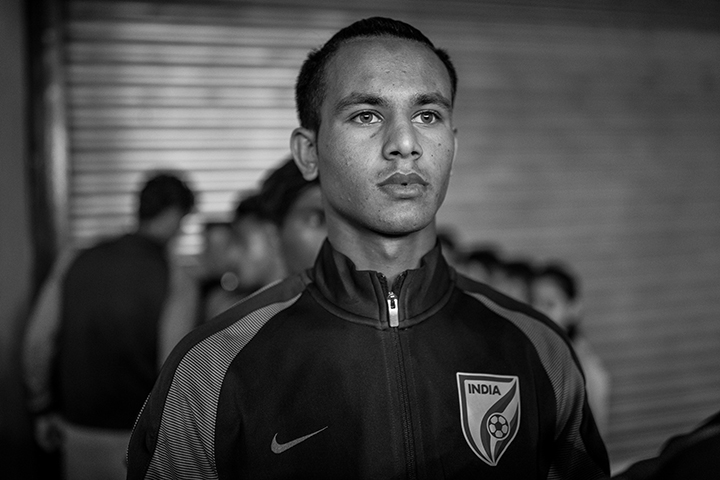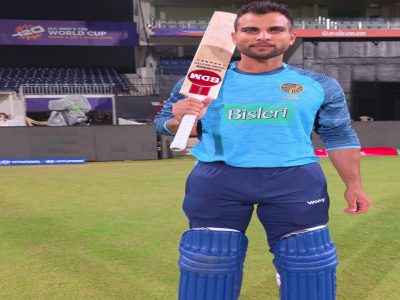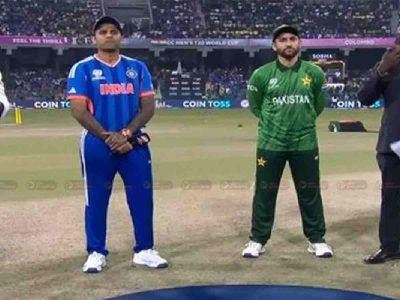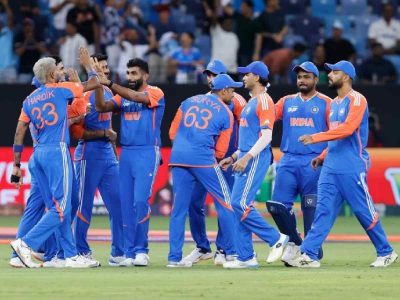Anwar Ali, one of the most promising youngsters of Indian football, has been asked to stop playing by the AIFF due to a heart condition, a decision which the footballer has challenged in court. Patriot explains the situation
Junior India international player Anwar Ali has filed a writ petition in the Delhi High Court against the All India Football Federation’s (AIFF) ‘recommendation’ that he should not be allowed to play professionally, as it would put his health at risk.
Ali, who has been diagnosed with a congenital heart condition, has argued that his ‘right to livelihood’ cannot be taken away and his lawyer has also cited certain lapses by the AIFF.
Anwar is the product of the famous Class of 2017 — the first Indian team to play in a FIFA World Cup, albeit in the under-17 age group. He was so impressive in the three matches that India played against the USA, Colombia and Ghana — that the following year, Indian Super League side Mumbai City paid Rs 30 lakh to get him from his childhood club Minerva Punjab. Back then, it was a record transfer fee in India for an under-18 player.
The 20-year-old is the breadwinner of his family of six. He is also considered to be among the best up-and-coming players in the country – a technically strong defender with good ability to distribute balls from the back and a penchant of scoring goals from dead-ball situations.
However, he has been diagnosed with a rare disease which – according to experts – puts his health at risk if he continues playing competitively.
Last year, during a medical examination in Mumbai, Ali was diagnosed with a heart problem called Hypertrophic Cardiomyopathy (HCM). It is a condition where a portion of the heart becomes thick without any reason. According to FIFA Medical Network, it has an ‘incidence of approximately 1:500 in the general population and it appears to be more common in men.’
After being diagnosed, Ali was sent for treatment to Rennes, France, and was also taken to some of the top cardiologists in Mumbai.
According to the AIFF, all of the medical staff at the AFC were of the opinion that if the youngster continues playing, it would pose a ‘serious risk to his life’.
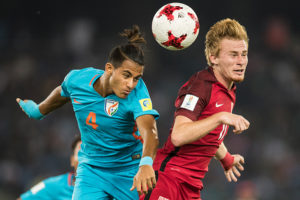
The medical panels of the AIFF and AFC have also recommended Ali ‘should be restricted from competitive sports activity.’ An AIFF statement even said that Anwar’s condition can cause cardiac arrest.
Coincidentally, before this, there was another Anwar Ali, a central defender for the Indian national team. In 2017, when he was with East Bengal, he suffered a heart attack while returning home after training. His condition is now stable, but the doctors or the club did not confirm if he had a similar condition.
Internationally, the most prominent case involved Fabrice Muamba, who suffered a heart attack during a Premier League match. The British media reported he, too, was suffering from HCM.
In 2005, months after the on-field death of Brazilian footballer Cristiano Junior following cardiac arrest during the 2004 Federation Cup final between Dempo and Mohun Bagan, a lot of players had to undergo medical check-ups.
Dipendu Biswas, who was with Mahindra United in 2001, too was diagnosed with HCM and Mahindra, after paying all dues and medical expenses, terminated his contract. But Mohun Bagan signed him and he continued to play for seven years after that. “Nothing happened to me,” Biswas says.
According to the FIFA Medical Network: “In general, once an athlete has been diagnosed with HCM they should be counseled against participating in competitive football and other high demand sports due to the risk of SCD (Sudden Cardiac Death)… The European and American recommendations for risk stratification in HCM can support the decision for exercise…But again, this should not change the recommendations regarding sports participation.”
In an email to the AIFF dated 24 September, Ali has claimed that the ‘act is completely against my fundamental rights, especially my right to earn livelihood and practice my profession.’
His lawyer has argued that if a club is willing to sign him and let him play professionally, the AIFF has ‘no power to ban him’. In his petition, he has also said it is a ‘matter between the club and the player’ and the federation does not have a role.
Since the diagnosis, Ali’s dream seems to have hit a dead end. His club at the time, Mumbai City, offered him a different role and even mooted the idea of making him one of the coaches of their youth team. But Ali refused and the contract was mutually terminated.
Recently, he joined Kolkata-based Mohammedan Sporting. Ali was set to play in the I-League qualifiers, which began on 8 October but after the AIFF and AFC’s recommendations, Sporting have not registered him for the tournament. The club and the AIFF have said they will try to provide him with an alternative career in football.

